Question ID: 2000-13636-0-2-5-7
Recipe Description
You may have already noticed the farmers market in your city's downtown. San Francisco has markets on Market Street between 7th and 8th Streets almost all day on Wednesday, and a market at the end of Market Street in front of the ferry building on Tuesdays. New York City has a market in Union Square, and lots of other places, including in Downtown Brooklyn, during the week. And Chicago has a very popular market in Daley Plaza and near the downtown post office on weekdays. I'm sure lots of other cities have them too.
If you don't know if there's one near you, and are unsure of when it is, just google for it or ask one of your co-workers or your friends who you've seen with a bag from the market. The one I went to at the Civic Center in San Francisco runs from the early morning to 5:30 pm on Wednesday, but many markets don't operate beyond the late afternoon. Since downtown farmers markets usually only operate on one or two days of the weekday and are seasonal (San Francisco's markets are year round), it can be easy to forget. I recommend that you put it as a recurring appointment in your work and personal calendars so that it just becomes part of your routine.
Though most sellers at the markets will give you small plastic bags, it's a good idea to bring a largeish bag of your own to carry all of your purchases. I happen to have acquired a lot of canvass bags, so I like to bring two of those with me on market day. Just roll them up and stick them in your purse.
Various friends of mine have those super neat, unexpectedly sturdy bags that roll into tiny bundles. Those rock. It's also totally fine to bring a plastic bag; just make sure it'll hold a reasonable amount of weight.
I'm not a morning person, I work late a lot, I tend to have a lot of lunch meetings or eat at my desk while working and I'm lazy, so I've found that the best time for me to go to the market is during lunch. If I've made it an appointment on my calendar, I'm more likely to eat lunch near the market and then shop. Or I'll schedule a lunch meeting near the market and shop after the meeting. The market at the Civic Center in San Francisco also features a few great food trucks -- tamales, falafel and roti -- which are delicious and cheap lunch options. Most markets have places nearby to sit and eat, so you won't be left standing with your tamale on the corner.
Farmers markets are made up of lots of small vendors from various local farms, creameries and bakeries, so they mostly take cash. That means that, if you aren't carrying cash (which I tend not to), then the first thing you should do when you leave your office is to get some cash from an ATM.
Definitely eat before you shop so that you aren't tempted to overbuy out of hunger. Though it doesn't hurt to skip desert at your lunch place in the expectation of buying a cookie or box of fresh strawberries at the market. But go early enough that you can get the best at the booths.
And don't forget to bring your canvas/plastic/mega bag that you packed that morning.
Seasoned farmers market shoppers get to know the best vendors at their local markets. But you won't. Vendors tend to sell some of the same items, especially apples, tomatoes, greens, baked goods and other staples. So take a tour of the entire market before you begin buying. As you look around, make a mental list of the items you both want and will actually eat. It's really easy to buy stuff you'll never eat -- like produce that requires a lot of preparation (beets, complicated squashes, etc.) or too much of something you like. Rotten vegetables or fruit in your fridge is depressing.
One of the benefits of taking an initial tour of the market is that a lot of the vendors give out free samples. Definitely take advantage of this!
I also recommend observing which booths appear to be the most popular, and what people are buying at these booths. Keep an especially sharp eye out for any chefs. If you see a chef or cooking school student at a booth, follow her around and see what she's buying. It's like a free class.
If you haven't been a fruit or vegetable aficionado your whole life, then you may encounter a very basic problem of not knowing what a lot of stuff is. Apples and carrots are easy to recognize, but you may never have seen a winter squash or various fancy mushrooms. So don't be afraid to ask the vendors or other people milling around the stand. I'm a huge fan of fresh spinach, but I still have trouble recognizing it when it's not labeled (the various kinds of lettuce completely mystify me), so I had to ask some vendors to point it out to me. Sad but true.
Finally, if you're concerned about eating organic food, then use your tour to note which booths sell organic.
Now that you've looked around and made your mental shopping list, go nuts shopping. Pick up the produce you're thinking of buying to check for blemishes and smell. Some of the organic food will look less obviously shiny than the processed stuff you're used to seeing in big grocery stores, but will probably still taste a whole lot better. Especially apples.
Use the small plastic bags at each booth to gather your purchases from that booth and pay the vendor directly. Remember: cash. Then place your purchases in the bag you brought with you. There may be lines at some of the more popular booths, so be patient.
Most people who start shopping at their farmers markets just buy things like apple, apple cider, baked goods and maybe cucumbers. I personally started with eating a lot of carmel apples. Once you get comfortable with those really basic items, you'll probably want to move on to buying actual vegetables -- like tomatoes, greens, squash, peppers, etc -- as well as herbs, cheese and yogurt. The next stage is experimenting with vegetables you've never seen before, mushrooms and meats.
If you're going to buy meat, make sure you have a place to refrigerate it in your office. The market in San Francisco sells fish. I don't recommend buying fish if you plan on a long, crowded train or bus commute. Your fellow commuters will hate you. And for good reason.
If you've shopped during lunch, then take your full bag back to your office and either put it in the company fridge or put it away in your space. Most fruits and vegetables don't need to be refrigerated, though you might want to air them out (take them out of the bag). But obviously cheeses, meats and yogurts definitely need to be refrigerated. If your office doesn't have a fridge, take up a collection or ask the boss to invest in a small one. They're fairly cheap. Or buy one for yourself.
If you bought herbs like basil or cilantro and you keep them near your desk, your office will smell wonderful for the rest of the day. The pleasing aroma will make everyone who comes into your office bend to your will.
Then get back to work.
One of the best things about shopping during lunch is that you can keep some of the food at your office. Create a place on your desk for apples or other fruit that you can snack on during the day. If you also keep some peanut butter or other basics around, you'll be less likely to go house on the catered desert plate left over from meetings or that evil, evil candy jar that your co-worker keeps simply to taunt you with.
At the end of the day, whenever that is, get your bag and head to the train or bus. If you're lucky enough to get a seat, put your bag of groceries between your legs at your feet. If you have to stand, you can also keep it between your legs at your feet. By doing this, you'll be more likely to avoid the contents being squashed by the people around you. It's kind of like protecting the ball when you're running down the field during a soccer match.
When you get home, empty your bag (and put it back in your purse). For greens and anything else with roots, put their roots in a bowl of water as if they are flowers. You can also put them in a wet cloth or napkin and then in the fridge. This will keep them fresh. Apples should stay out. You can keep the other vegetables and fruits out too if you're planning on using them within the next day. Otherwise, put them in the crisper in your fridge.
I recommend trying to eat or cook your haul as soon as possible. Cut up your cucumber and use it with hummus or some interesting dip. Eat your apples with peanut butter or cheese or caramel (or, if you have to, something healthier). Steam or roast or fry your squash and other vegetables -- and then melt your cheese all over them. Mmm, all vegetables taste great smothered in melted cheese. Or, heck, make a real recipe if you must. I have no advice for you on actual cooking.
Question & Answer
Question: Choose the best image for the missing blank to correctly complete the recipe.
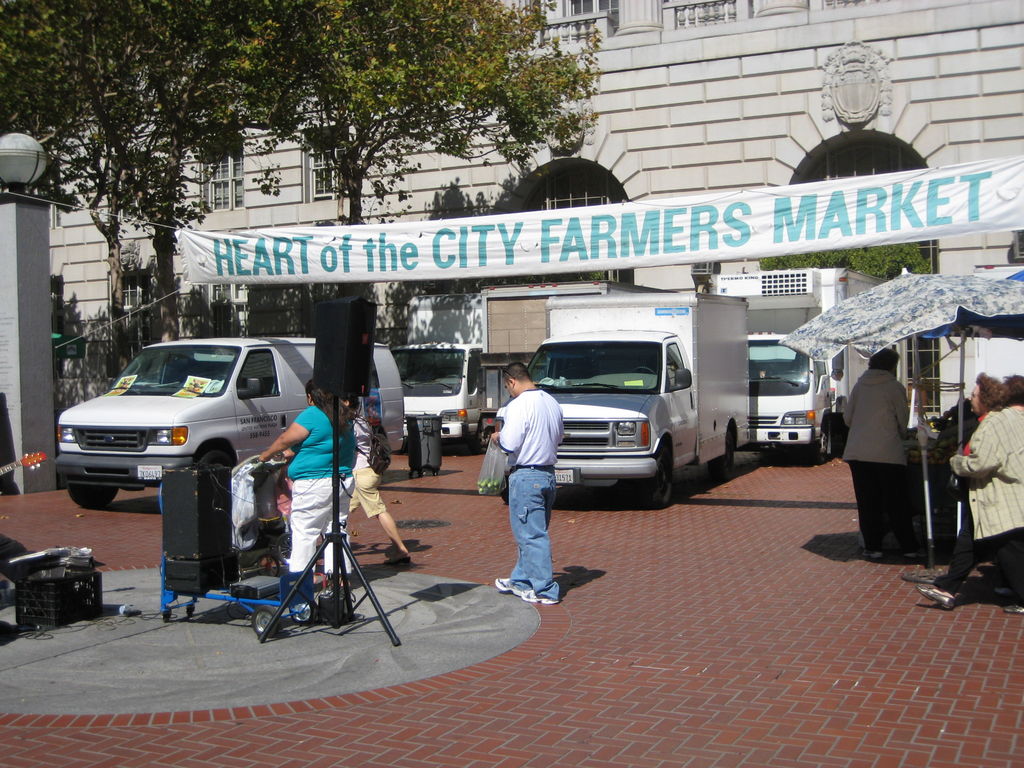

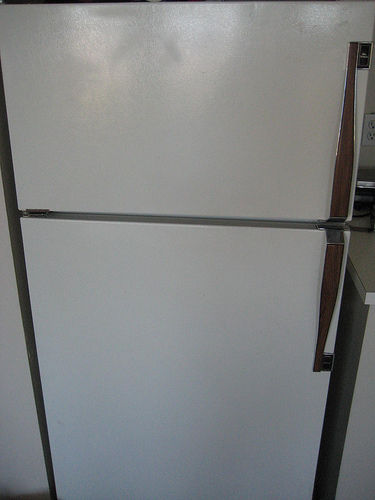
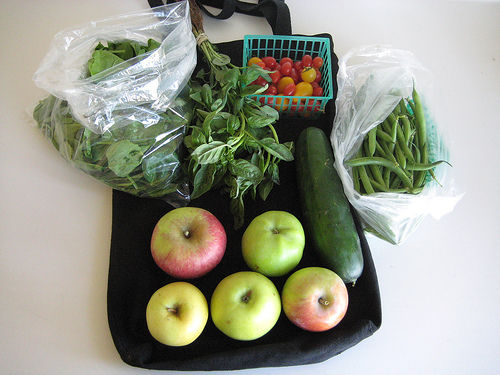
Choices:
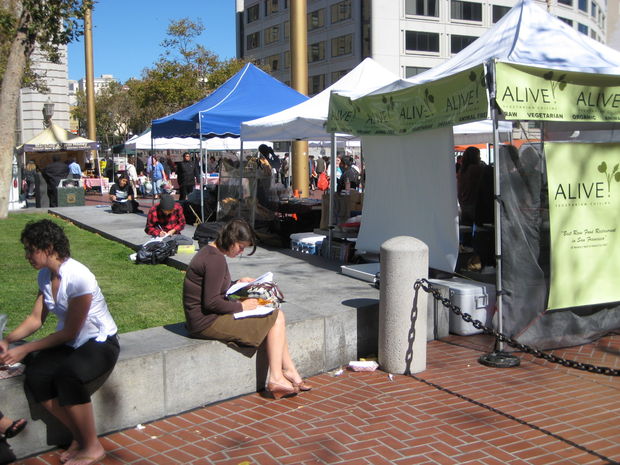 |
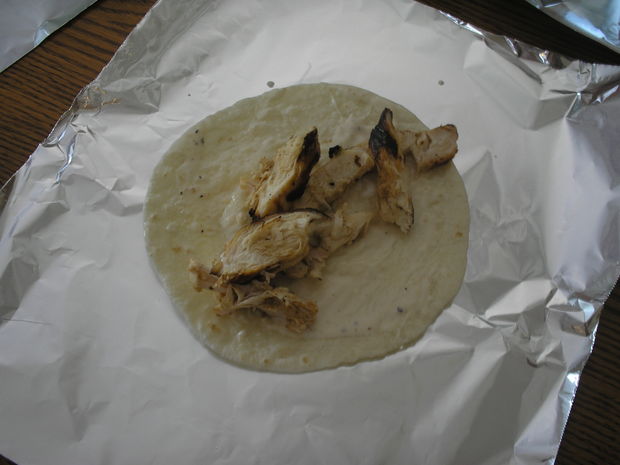 |
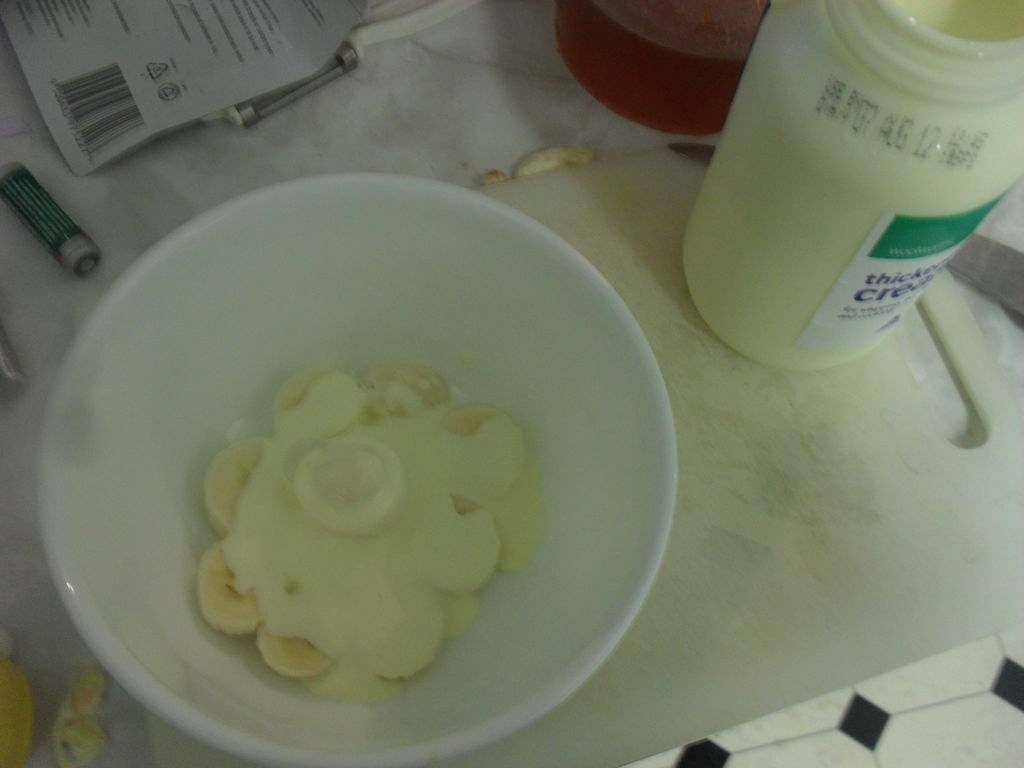 |
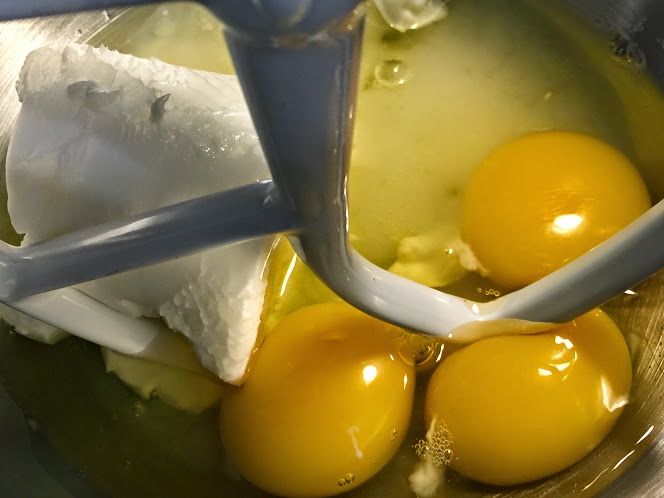 |
|---|---|---|---|
| (A) | (B) | (C) | (D) |
 |
|---|
 |